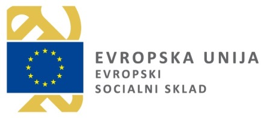Media and minorities in Slovenia
on 14th December 2018, live on Radio Študent.
Topics:
- examples of good practices - media, channels and programmes aimed at former Yugoslavia ethnic communities in Slovenia,
- problems the decision makers on different levels are facing: politicians, civil servants, editors and
- journalists in creating minority media in the languages of former Yugoslavia,
- the role of the Ministry of Culture, that is, the Republic of Slovenia,
- possible solutions and strategies for the development of minority media in Slovenia (examples: the Italian, Hungarian and Roma media),
- examples of good practices from abroad: Novosti, the magazine and portal in Croatia (means of funding, editorial policy, position in the media landscape and society),
- the emancipatory potential and importance of the minority media for the entire society at the present moment when the right-wing politics is on the rise in Europe, as well as the “fake” media and “fake” news.
Guests:
Tamara Opačić, deputy editor-in-chief of the weekly magazine and portal Novosti from Zagreb,
Brankica Petković, MA, a researcher at the Peace Institute, project consultant on #MINORITIESONLINE
Sašo Gazdić, PhD, Head of Office for Cultural Diversity and Human Rights, Ministry of Culture
Andrej Stopar, PhD, editor-in-chief of the Radio Slovenia First Channel
Ivana Stipić Lah, editor of the programme Sami naši on the Radio Slovenia First Channel
Antun Katalenić, co-author of the programme in the Croatian language Mali granični prijelaz on the Radio Študent
Moderator:
Biljana Žikić, PhD, author of the programme in the Serbian language Kontrola leta on the Radio Študent and journalist with the programme Sami naši on the Radio Slovenia First Channel.
The round-table discussion is organised in the framework of the project #MINORITIESONLINE, co-funded by the Republic of Slovenia and the European Social Fund and carried out by the Serbian Cultural Centre Danilo Kiš.


